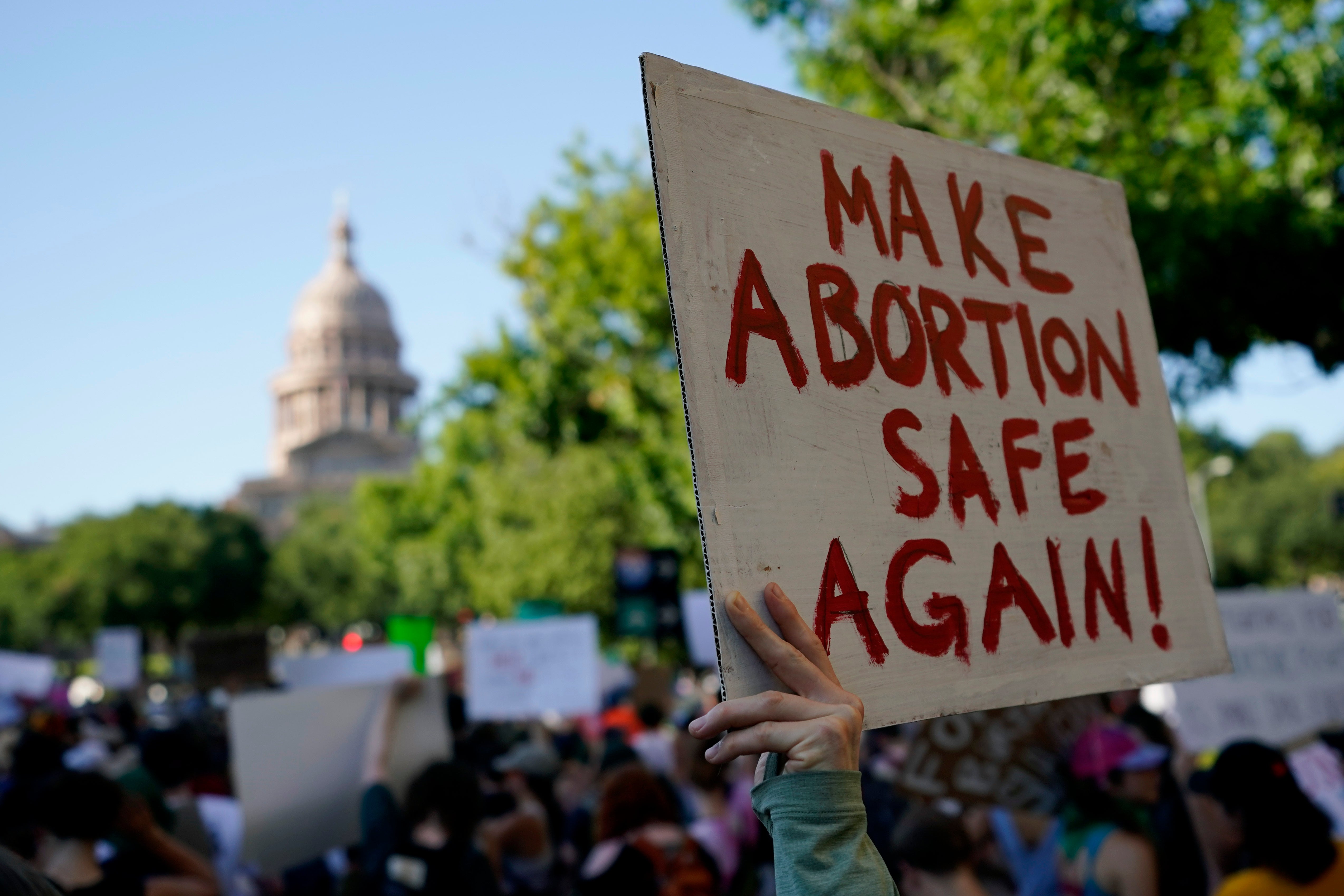Woman left to bleed for 10 days from incomplete miscarriage after being turned away by hospital post-Roe
Because of Wisconsin’s outright ban on abortion, the woman was turned away by emergency room staff at a hospital
Your support helps us to tell the story
From reproductive rights to climate change to Big Tech, The Independent is on the ground when the story is developing. Whether it's investigating the financials of Elon Musk's pro-Trump PAC or producing our latest documentary, 'The A Word', which shines a light on the American women fighting for reproductive rights, we know how important it is to parse out the facts from the messaging.
At such a critical moment in US history, we need reporters on the ground. Your donation allows us to keep sending journalists to speak to both sides of the story.
The Independent is trusted by Americans across the entire political spectrum. And unlike many other quality news outlets, we choose not to lock Americans out of our reporting and analysis with paywalls. We believe quality journalism should be available to everyone, paid for by those who can afford it.
Your support makes all the difference.A woman in Wisconsin was left to bleed for more than 10 days after suffering an incomplete miscarriage as doctors in the state struggle to navigate abortion laws in a post-Roe America.
Carley Zeal, an OB/GYN in southern Wisconsin and fellow with Physicians for Reproductive Health, told The Washington Post that the unidentified woman was going through a miscarriage and needed to have the fetal tissue removed from her uterus.
However because of Wisconsin’s outright ban on abortion, the woman was turned away by emergency room staff at a hospital in the state.
Dr Zeal said that she saw the woman more than 10 days later when she was still bleeding severely and at serious risk of infection.
She treated the patient with medication to expel the fetal tissue from her uterus – the same medication used in many abortions.
“It really delayed her care,” Dr Zeal said. “I saw her a week and a half later with an ongoing miscarriage and bleeding, increasing the risk of severe bleeding as well as infections.”
The US Supreme Court overturned the landmark Roe v Wade ruling on 24 June, ending 50 years of federal abortion protection and sending power over access back to individual states.
In Wisconsin, almost all abortions were immediately banned because of an outdated law from 1849 which criminalises abortion care, making it punishable by up to six years in prison.
The only exception to the state’s abortion ban is when there is risk to the mother’s life.
Wisconsin’s Democratic Governor Tony Evers and Attorney General Josh Kaul have challenged the 1849 law arguing that its age means it should be unenforceable and that 1980s statutes supersede the ban.

However, in the meantime, abortion providers have been forced to stop providing care and doctors are clamouring to understand how to treat patients, including women suffering miscarriages, ectopic pregnancies and other complications.
Dr Zeal told The Washington Post that another physician had reached out to her for a second opinion on a patient who was suffering from a ruptured ectopic pregnancy.
“She knew exactly what she had to do because [the patient] was bleeding and was clearly going to die if nothing was done,” said Dr Zeal. “But she wasn’t sure what she needed to document to be sure she wouldn’t be charged with a felony.”
Confusion around whether doctors can treat patients without facing criminal prosecution has become a growing issue in several states.
Several reports have detailed delays in patient care as physicians have been forced to consult other doctors and lawyers for approval.
With abortion access fractured across the US, Democrats are trying to introduce sweeping federal protections.
On Friday, the US House of Representatives passed two bills: the Women’s Health Protection Act and the Ensuring Access to Abortion Act.
The Women’s Health Protection Act would codify the right to abortion care across America.
But, while the bill has passed the House, it is unlikely to clear the Senate with its 50-50 split of Republicans and Democrats.
Subscribe to Independent Premium to bookmark this article
Want to bookmark your favourite articles and stories to read or reference later? Start your Independent Premium subscription today.




Join our commenting forum
Join thought-provoking conversations, follow other Independent readers and see their replies
Comments